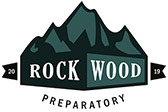
Dyslexia is a language-based learning disability that includes difficulty in the use and processing of linguistic and symbolic codes, alphabetic letters representing speech sounds, or numeric representing numbers or quantities.
Children with Dyslexia usually experience difficulties with spelling, reading, writing, and pronunciation. According to NIH research, of those who are placed in special education for a learning disability, around 80% of those have dyslexia.
Cluster symptoms play a role in diagnosing Dyslexia. Here’s an adapted checklist that you can use to help with early diagnosis of Dyslexia, courtesy of www.dyslexiasupportservices.com.au.
- Family history of reading and/or spelling difficulties
- Has difficulty in paying attention, sitting still, or listening to stories
- Finds it hard to carry out two or more instructions at a time
- Often doesn’t like reading books
- Reads below the standard level
- Difficulties with comprehension
- Problem remembering homework assignments
- Poor short-term memory
- Often has difficulty separating sounds into words, isolating sounds in words, or blending sounds to make words
- When reading will often lose their place on a line
- Can read a word on one page, but doesn’t recognize it on the next page
- Has poor handwriting, badly formed letters
- Has neat handwriting but writes very slowly
- Writing is very messy with many words crossed out
- Has trouble learning colors, days of the week, months of the year, and their birthdate
- Can think at a high level in mathematics, but needs a calculator for simple equations
- Has trouble retaining facts
- Has extreme difficulty in telling time
- Poor concentration
- Seems to daydream frequently
Children with Dyslexia have a unique and wonderful brain function. And, although they struggle with reading, spelling, writing, and at times math. difficult. They often have strengths and gifts in other areas controlled by the right hemisphere of the brain. They are particularly strong in creative areas and design. Most children with dyslexia are artistic or they have athletic, musical, cooking and mechanical ability, along with great imaginations.
There are many other cluster symptoms associated with dyslexia. To get help for your child, email us.
About Rockwood Preparatory Academy
Rockwood Preparatory Academy provides education and therapies to the special needs community. Our responsibility not only lies with our students but is also extended to all individuals with learning disabilities and developmental delayed attributes. That’s why we also provide critical therapies, social |behavioral skills groups, and other enriching activities to the entire special needs community.
Our signature My turn® programs and modalities greatly enhance the overall development of children with special needs in a positive, joyful environment.
Students, ages 5- 18 attending Rockwood Prep spend part of their day setting and achieving academic goals, while learning how to adapt and thrive with their unique set of social, behavioral, and educational challenges. The second part of the school day includes fin and innovative activities and therapies with tangible wins and successes.
To request a tour of the school or to learn more, email us.
